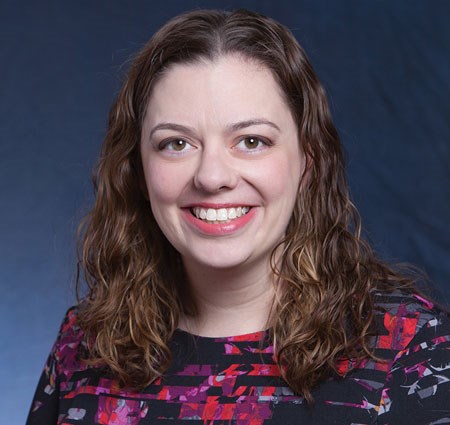
If you're interested in health care policy issues, you've heard of — and most likely have met — Alison Haddock. Since her second year of residency, Dr. Haddock has been a staple at advocacy events on the national and state levels. She and Nathaniel Schlicher, MD, JD, FACEP, oversee the Emergency Medicine Advocacy Handbook, updated every few years. (As past EMRA Legislative Advisors, the two physicians both have continued to educate and inspire colleagues to get involved in health care policy initiatives.)
Dr. Haddock currently serves as ACEP State Legislative Committee chair, and she advocates tirelessly for her patients and her colleagues by staying in the know about policy issues. EM Resident spoke with Dr. Haddock to learn what drives her belief that legislation matters to every practicing physician.
Medical school: Cornell University Medical College
Residency: University of Michigan
Current Position: Assistant professor of Emergency Medicine – Baylor College of Medicine
First things first: Why emergency medicine? When I went to medical school, I planned on going into pediatrics, but then I discovered that the reason I had enjoyed pediatrics so much in my preclinical years was that I had volunteered in several pediatric emergency departments. I realized what I liked most was the emergency medicine, not the pediatrics. I like caring for people from all walks of life, and the opportunity to see a wide variety of patients.
You've been extremely active in organized medicine. What's your favorite volunteer role?
I loved being the EMRA Legislative Advisor. It gave me the opportunity to work with other residents about something we were passionate about. The cool thing was I got to dive deep into health policy and figure out how to represent residents within the broader house of medicine, while I also got to know EMRA and ACEP much better.
How has being a volunteer helped your career? I think the leadership skills I've learned through my involvement in EMRA and ACEP have helped my career tremendously. Learning how to work in teams and represent your ideas well, learning how to work with others who may disagree with you — those are important life skills. But the other thing is the networking opportunities. You get to know some of the people you would be working for before you work for them. I was recruited to my current job by Nathan Deal, MD, FACEP, who was the president of EMRA while I was on the EMRA Board. Another job I was considering was with someone I had worked with on the ACEP Education Committee.
If you were just starting your residency now, what would you do differently? I would get more involved with EMRA and ACEP sooner. I went through my first year of residency knowing I wanted to be involved in health policy but not knowing how to do that. I didn't even know what health services research was called. There is a fine balance between getting overwhelmed your intern year and still finding opportunities to be involved.
What keeps you coming to work every day? I really love teaching. I like the opportunity to work with residents and medical students and expose them to new approaches, and have that teamwork. When I worked in community medicine, I missed the teamwork aspect of EM.
Favorite life hack for night shifts? Oh boy, I need some. Can anybody give me some tips? Night shifts are just hard.
Best time management tip? I'm a big fan of the Pomodoro Technique, which says you can really only concentrate on something for 20 to 25 minutes at a time. No interruptions; just do that one thing. So I have a timer, and I can see it's running but I can't see how long I have left. I tell myself, “You can do anything for 20 minutes.”
Dog or cat? Dogs, 100 percent. I'm looking at 2 of them right now (Ginger, a mini Labradoodle, and Gilligan, a Spaniel mix). We compete formally in agility — with ribbons and all.
Beach or mountains? Beach. I'm afraid of heights, and mountains aren't as fun without chair lifts and skiing.
What goes on pizza? Sausage and mushrooms
Most-used app? Really, probably email — but that's boring. I spend an embarrassing amount of time on Threes!, an iPhone game. It's so addictive.
Favorite Twitter feed? @MDAware
Visit emra.org/resources/emra-cast to hear our interview with Dr. Haddock.



